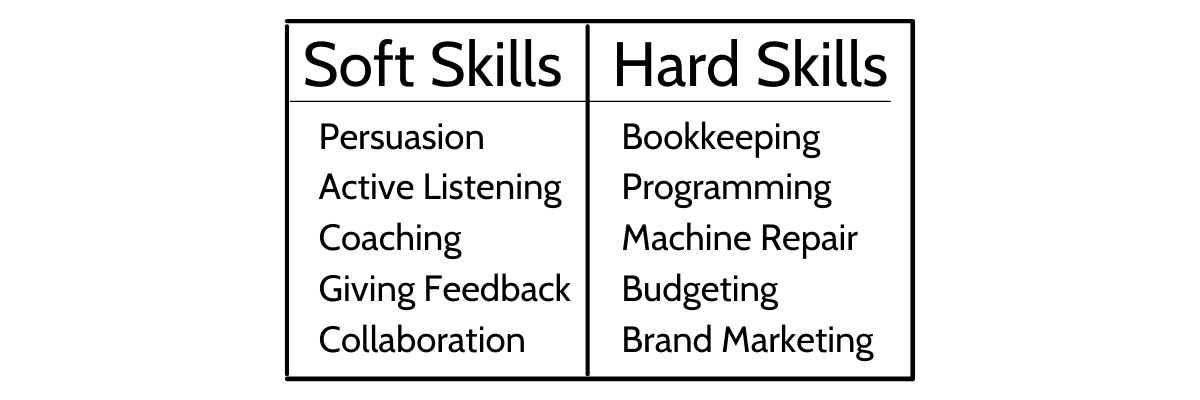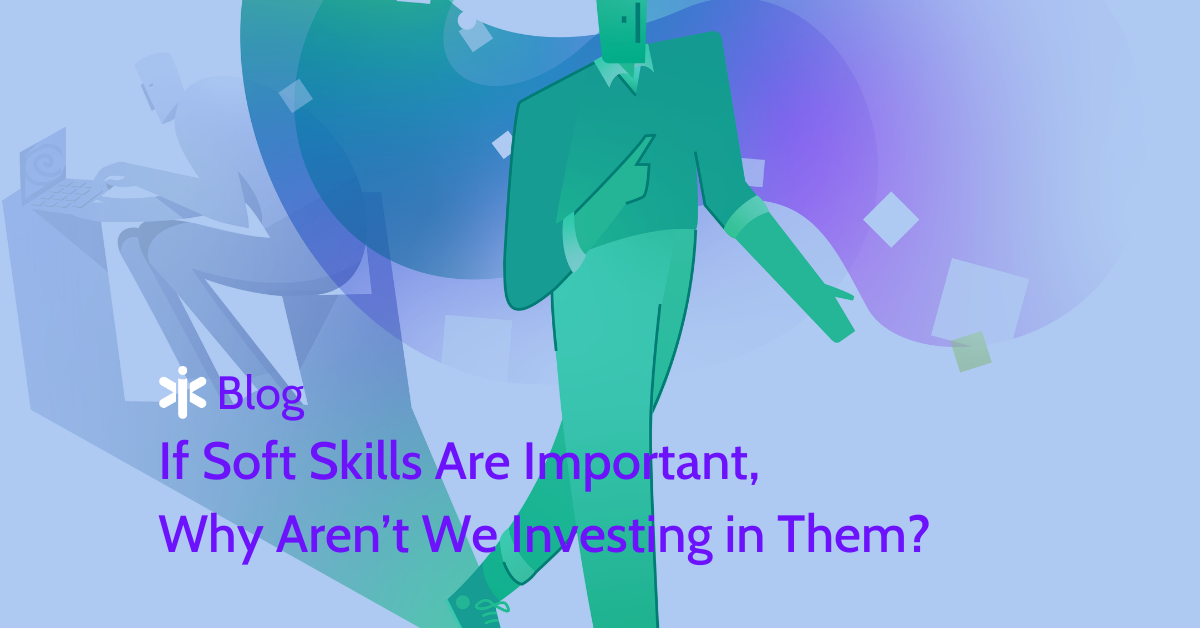When we look around the room – or Zoom – at work, it’s apparent where our colleagues’ strengths lie. Some are expert communicators. Others are collaborative problem solvers. A few excel on the creative front. These skills are key drivers of success in the workplace but are often ignored in academia or de-emphasized in professional training programs.
“Soft skills” are abilities that relate to how a person works and how they interact with other people. These skills are not readily quantified on a resume, and recruiters are focused on hard skills like coding or spreadsheet expertise. Hard skills land you the interview, and they’re often what gets you hired. But soft skills will make you good at your job.

Both sets of skills are important at work and for career development. Keeping hard skills current is crucial to the technical aspects of jobs. How can a software engineer succeed in their role without up-to-date knowledge of platforms and languages? They can’t.
Unfortunately, technical skills aren’t enough for success in a profession. The influence and impact that lead to advancement are driven by a mastery of soft skills. Long term success in a role results from combining technical skills with interpersonal skills.
If this is the case, why aren’t all employers improving their soft skills training for employees?
The issue isn’t lack of awareness. While they may not be training or coaching employees, employers do care about soft skills – among senior leaders, 57% said soft skills were the more important set of skills for their employees to possess.
And the problem isn’t one of understanding the impact. 77% of those polled in PwC’s CEO report stated that a lack of soft skills could harm the future success of their organization. They also reported trouble finding creative leaders with emotional intelligence. Instead of looking outward for these skills, doesn’t it make more sense to invest in developing their current workforce’s soft skills?
The challenge isn’t awareness.
The obstacles to developing interpersonal skills development are on the training side. The first obstacle is that soft skills are behavior, and it’s hard to change behavior. It’s not just what we know, it’s what we do. Watching an online tutorial is unlikely to lead to better collaboration or leadership. To master a new behavior means practice and feedback. It’s a slow and steady pace with behavior change.
Let’s say an employee, Nate, wants to improve his interpersonal and networking skills. Great! Nate is invested to find success in his career outside of his technical expertise. But where does he begin? Maybe he jumps into the deep end with a networking event. But without someone to observe his interactions, and provide meaningful coaching, will he actually improve? Possibly, but it’s unlikely to happen quickly or efficiently.
Practice makes perfect with soft skills…Deliberate practice, that is
Consider learning to golf. You can get some clubs and go to a driving range every weekend. You’ll soon reach a plateau of consistent mediocrity. Simply swinging a club without guidance won’t help you hit a ball 250 yards straight, no matter how many times you try. The missing piece is coaching with feedback pointing to areas of improvement: your stance, your grip, your swing, and your follow-through. To get to the next level, you need guided, deliberate practice.
In a business context, you can’t improve your interpersonal skills without regular practice and feedback working in concert toward improvement.
The missing element for improving soft skills
Training organizations know that personal coaching is the gold standard for developing soft skills. Taking time to work with a coach, understand the areas lacking and continuing to work until the skills have been perfected is the recipe for success. Unfortunately, the cost of a personal coach is prohibitive for all but a few executives in most organizations.
This is where we are: Interpersonal skills are behavior, and improvement requires deliberate practice. Practicing can be done solo, but the feedback must come from somewhere. Personal one-on-one coaching yields the best results but at a high cost. As a result, most managers and future leaders get no coaching at all.
In our next blog, we’ll discuss the key to make coaching for soft skills attainable for all.
